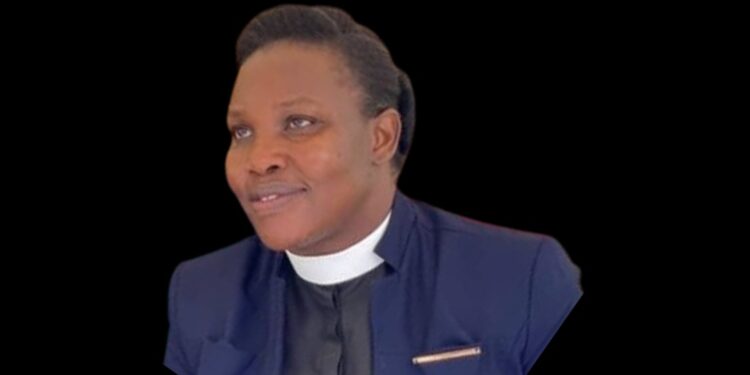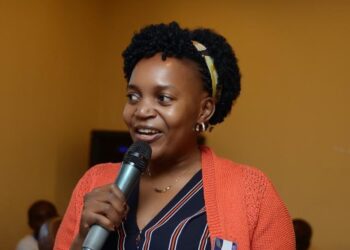As the 27th Provincial Assembly of the Church of Uganda prepares to convene for their bi-annual gathering at Uganda Christian University next month; gender inequality among Clergy must be addressed to uphold the credibility and moral authority of the Church in the 21st Century.
This is also to our best efforts to the groundbreaking Resolution 33 of Lambeth Conference (1988) of the Anglican Church which elevated women to the Priesthood of God’s Church, and to the same and equal partnership in the preaching of the Gospel (Mat 28: 18-20).
According to the Anglican Communion own statistics, as of 2020, women make up approximately 26% of all clergy and Women Bishops account for only 12% of all Bishops in the Anglican Communion.
In Uganda, the solitary appointment of a clergy woman as a provost of Kampala Diocese, has also done little to shatter the gender glass ceiling which to appear to be firmly in place. For instance, of all the clergy in Kampala Diocese, only 1% are women.
Astonishingly, in all the Dioceses of the Province, the Church is yet to appoint a woman to just the first tier of Church administration i.e. Archdeacon. Such a glaring omission, despite the Church’s more than a century of vivid existence; brings to light the institution’s lingering patriarchal attitudes and biases.
And it is worse in Namirembe Diocese, which prides as one of the oldest and most influential diocese in the Province. In more than 130 years of their existence in Uganda, not a single clergy woman has ever been promoted to the position of Canon.
In Dioceses like Nebbi, Northern Uganda and Kumi where gender roles and responsibilities are rigidly defined by nomadic and pastoral culture, only 1% of total number of clergy ordained as women.
To the few women who are lucky to join the ordained ministry, Chaplaincy has become career cul-de-sac for most clergy women.
To most clergy, school chaplaincy is viewed as a ‘dumping ground’ and this is where most women are posted, where they are forever deprived of the same level of authority, influence and career progression as their male counterparts.
And once ‘locked up’ in Chaplaincy positions, opportunities for women advancement are impaired and severely restricted from reaching the “full unity in faith and the knowledge of Son of God” (Eph. 4:13).
The prolonged tenure of chaplains in schools like Buloba schools, Gayaza High School and Budo Junior School, often exceeding 20 years; is also another point of contention among clergy women. This stagnation not only perpetuates a monoculture that stifles innovation and creativity in Church schools but also disconnects Women Chaplaincy from the evolving needs and concerns of the students and staff.
It was not until the Lady Chaplain of Mengo Senior School, who had dedicated her 20 years of service to the Church, made a courageous move to break through the ‘glass ceiling’ and leave Namirembe Diocese to go to West Buganda Diocese, did her hard work receive the well-deserved recognition as Canon.
The consequences of all this are dire. While women’s talents and expertise will go under-utilized, voices unheard and leadership aspirations frustrated; the Church will also miss out on vital benefits of diverse leadership, increased innovation, and collaborative skills.
And in Church schools like Gayaza and Budo where the business of shaping up future leaders is in haste, teachers and students will be forced to put up with a disgruntled Chaplain but also to put up with a systemic issue that undermines the Church’s ability to properly nurture and develop its leaders.
Uganda is a signatory to various regional and international agreements like CEDAW, the Protocol to the African Charter on the rights of women in Africa (Maputo Protocol) Human and people’s rights and the UN’s Sustainable Development goals particularly Goal 5 on Gender Equality among others.
The 27th Provincial Assembly can also leverage on the good comprehensive institutional framework for technical and financial capacity of the Church. These institutions include Women’s Network (UWONET), Action for Development (ACFODE), Forum for Women in Democracy (FOWODE), Uganda Association of Women lawyers (FIDA-Uganda) and the National Association of Women Organizations in Uganda (NAWOU).
And by tapping into the above resources the 27th Provincial Assembly is sure to engage in constructive and collaborative dialogue on issues such as clergy women training programs, establishing clergywomen mentorship initiatives and setting up of measurable goals which specifically target gender mainstreaming in the entire Church (Eph. 4:3) and to fulfill its mandate to uphold justice and equality for all persons (Mic. 6:8. Mat. 25:31-46).
AUTHOR:
Rev. Esther Musisi
CHAPLAIN, Maya High School
Do you have a story in your community or an opinion to share with us: Email us at editorial@watchdoguganda.com













